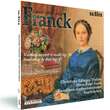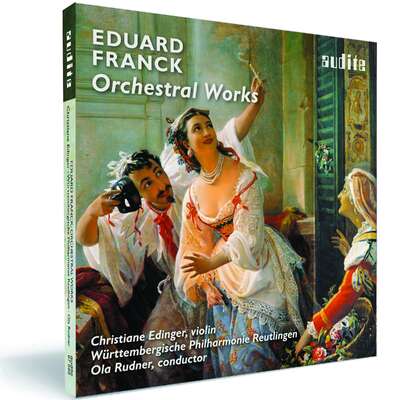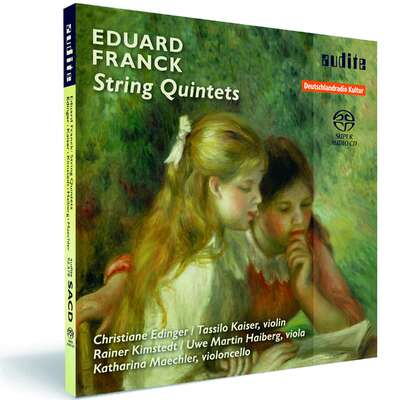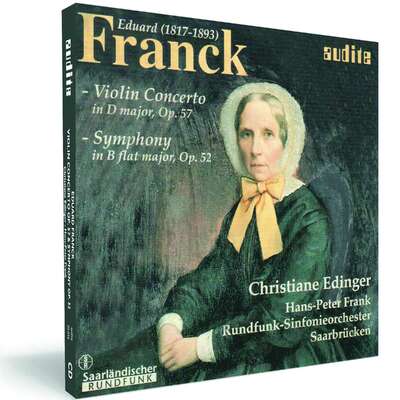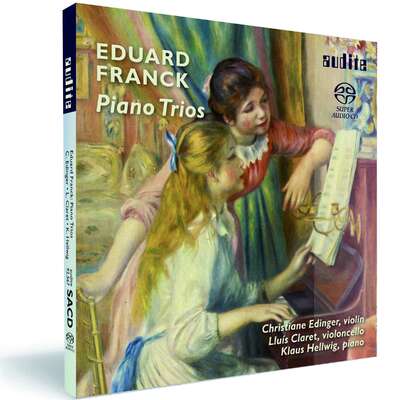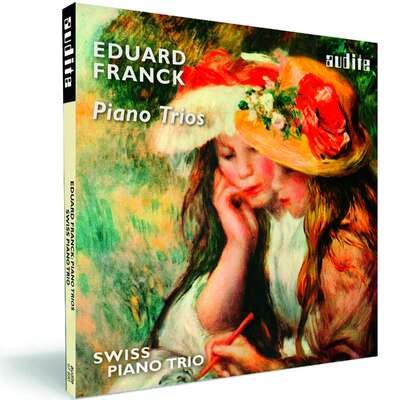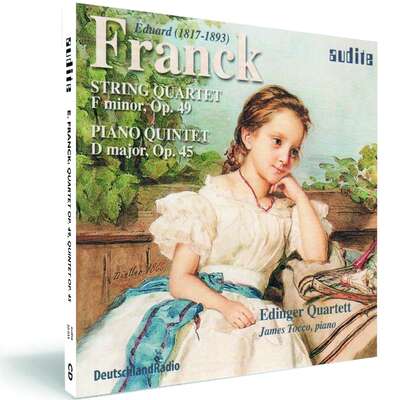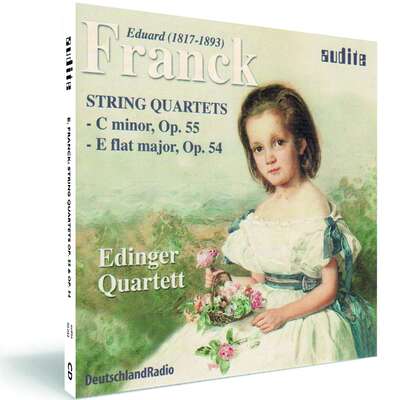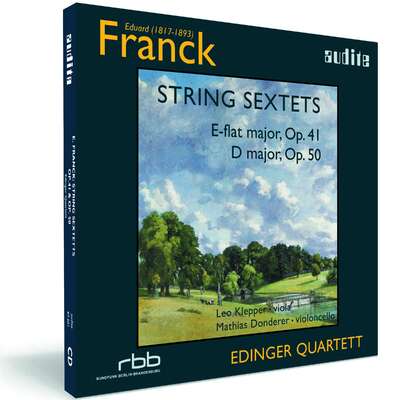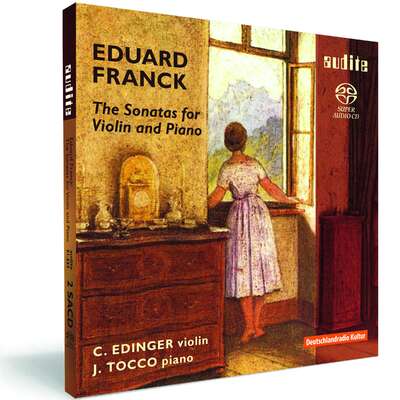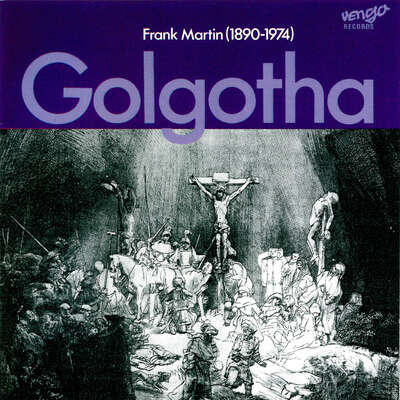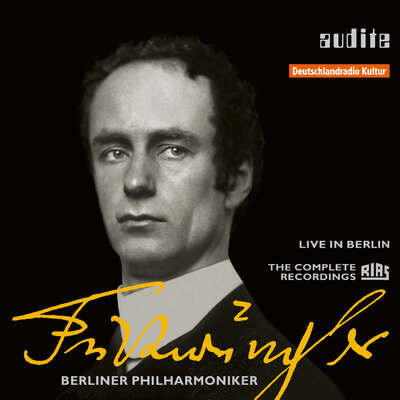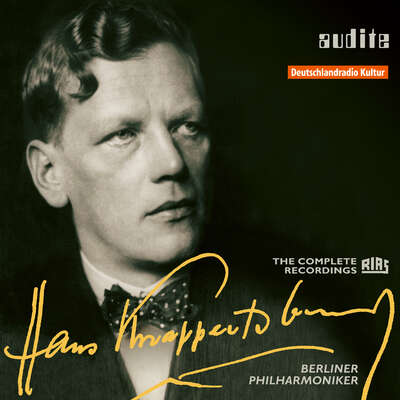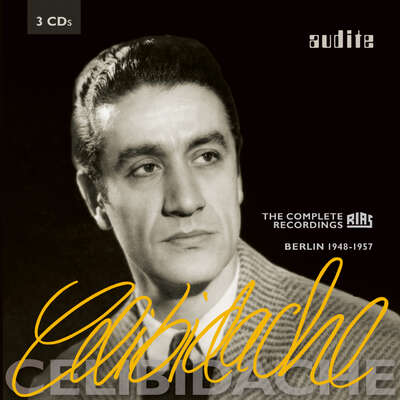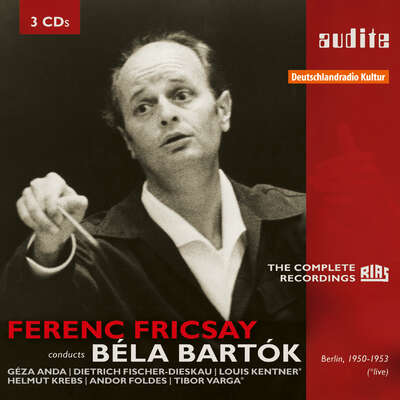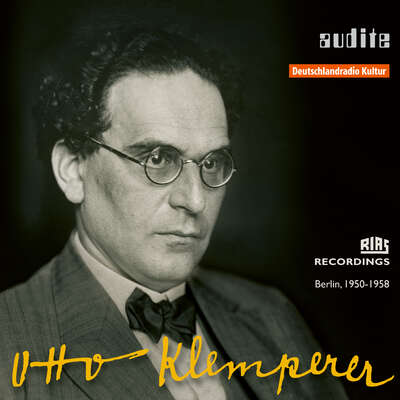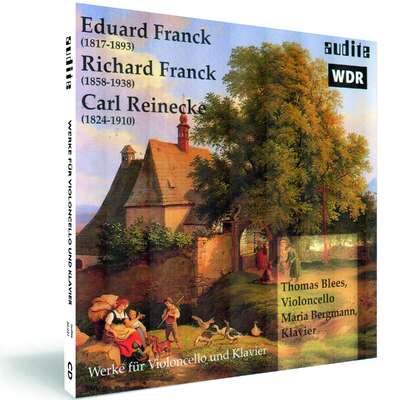
With this orchestral recording we are proud to present a further CD from the series of works of the Francks, father and son . Eduard Franck was one of Mendelssohn's very few private pupils. The latter thought very highly of his young protégé and friend as a pianist as well; they frequently...more
"Ludger Böckenhoff and Audite should take a curtain call for their valiant advocacy of this otherwise disgracefully disregarded figure. Meritorious and highly attractive music at last out into the light of common day." (Musicweb International)
Details
| Eduard Franck: Orchestral Works I | |
| article number: | 20.025 |
|---|---|
| EAN barcode: | 4022143200259 |
| price group: | BCA |
| release date: | 1. January 1998 |
| total time: | 71 min. |
Informationen
With this orchestral recording we are proud to present a further CD from the series of works of the Francks, father and son. Eduard Franck was one of Mendelssohn's very few private pupils. The latter thought very highly of his young protégé and friend as a pianist as well; they frequently performed together in public. Eduard Franck was unusually productive as a composer, especially in the area of instrumental music. He wrote numerous piano pieces, chamber music for a variety of combinations, several symphonies, a concerto for two pianos and orchestra, two violin concertos as well as several overtures. A large portion of his oeuvre remained unpublished, and some of it was lost after his death. Eduard Franck worked out his ideas on the basis of very solid musical and technical knowledge to produce works with a remarkable independence which frequently speak an entirely individual language.
Christiane Edinger performed as soloist with the Berlin Philharmonic Orchestra already at the age of 19. Her recordings range from the complete solo works of Bach to works of the Romantic Period to Penderecki's Violin Concerto, which she has already recorded twice under the composer's direction. Since 1994 Christiane Edinger has been a Professor of Violin at the Music Academy in Lübeck. Her artistic achievements have been honoured with the Music Prize of the City of Berlin and the German Critics' Prize.
Hans-Peter Frank was first a pianist (prize winner in the 1955 Schumann Competition) and regular accompanist of Peter Schreier. He completed his years of assistance in conducting under Kurt Masur and Othmar Suitner at the Dresden State Opera. He worked at the German National Theatre in Weimar as an opera Kapellmeister, then taking over the artistic directorship of the Berlin Symphony Orchestra for fifteen years at the side of Kurt Sanderling following his Weimar period. He worked in Sweden for ten years as Principal Conductor of the Helsingborg Symphony Orchestra, then serving as Music Director and Principal Conductor of the German National Theatre in Weimar for seven years.
Reviews
Neue Musikzeitung | Juli/August 2004 | Hanspeter Krellmann | July 1, 2004 Schatten-Dasein – Komponisten, die aus dem Raster fallen
Unser musikgeschichtliches Verständnis orientiert sich an Eckdaten: SieMehr lesen
www.musicweb-international.com | 01.11.2003 | Rob Barnett | November 1, 2003
Eduard was the brother of Hermann (1802-1855) who, as a writer on music, had contact with Wagner, Goethe and Heine. The other brother, Albert, had aMehr lesen
The E minor Violin Concerto was composed in Cologne to which Franck had moved at the request of Ferdinand Hiller. It was premiered by another Hiller invitee, Theodor Pixis. It is a work of streaming intensity deliciously prone to lyrical flights akin to the Mendelssohn concerto (in the same key) but without the ineffable surge of smiling quicksilver. The last movement recalls a village fiddler and rustic dance floors across the continent.
The Symphony in B flat major represents a crossroads between early Schumann and Mendelssohn. The horn solos are very colourful and make a memorable effect although the execution is not ideally polished or rounded. There are some Schumann-like accelerandi like those that inject the drama into the Fourth Symphony. You will find yourself easily hooked whether by the fluttery athleticism of the second movement, the winsome flute-playing of the Adagio with its momentous atmosphere or the Mendelssohnian chasseur-style allegro writing. This is a strong mood invoker, relaxed and Beethovenian (Symphonies 4 and 8).
Ludger Böckenhoff and Audite should take a curtain call for their valiant advocacy of this otherwise disgracefully disregarded figure. Meritorious and highly attractive music at last out into the light of common day.
ABC – Blanco y negro Cultural | Juan Manuel Viana | March 22, 2003
Amigo de Schumann y alumno privado de Mendelssohn -también como éste,Mehr lesen
Neue Musikzeitung | 5/2002 | Mátyás Kiss | May 1, 2002
Der in Breslau geborene Mendelssohn-Schüler Eduard Franck (1817-1893) hatMehr lesen
Bayernkurier | Nr. 36 | Wolfgang Johannes Müller | September 6, 2001
NEUER ROMANTIKER
Ein Meister namens Eduard Franck
Über einen vergessenenen Komponisten noch so begeistert zu reden, istMehr lesen
Frankfurter Allgemeine Zeitung | 17.08.2001 | Werner M. Grimmel | August 17, 2001
Pflicht zur Romantik
Da ist Platz neben den Gipsbüsten: Eduard Franck hat ihn verdient
Die vorbildlichen Ersteinspielungen mit dem Rundfunk-Sinfonieorchester Saarbrücken unter Hans-Peter Frank fördern originelle hochromantische Orchesterwerke zutage.Mehr lesen
Crescendo | Juli/August 2000 | Jakob Buhre | July 1, 2000
"Die großen und kleinen Geiger unserer Zeit spielen fast nichts mehr alsMehr lesen
Fono Forum | 10/1998 | Giselher Schubert | October 1, 1998
Eduard Franck (1817-1893) mag man ein wenig abschätzig als typischen Kleinmeister des 19. Jahrhunderts charakterisieren, vergißt darüber aber allzuMehr lesen
